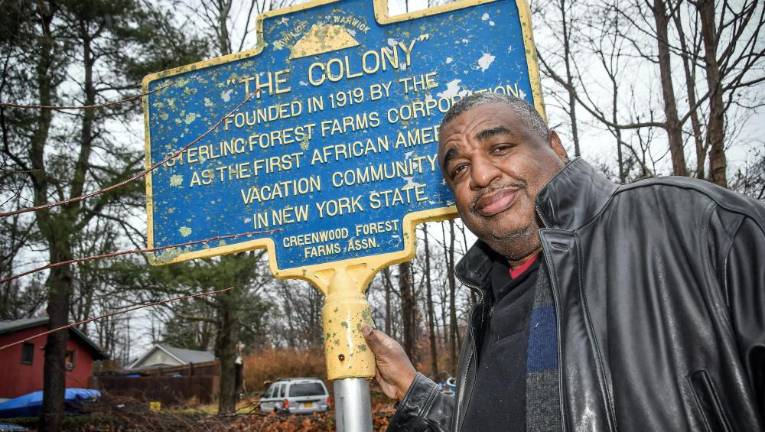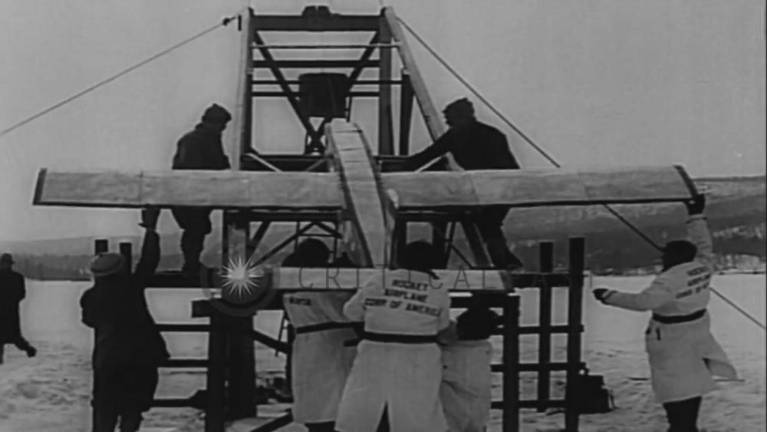Greenwood Lake’s centennial celebration continues with history lectures
Greenwood Lake. Learn about the lake’s elite Black vacation community and the airmail experiment that rocked the region.


On Sunday, February 11, at 1 p.m., the Greenwood Lake Library will host Town Historian Dr. Richard Hull, who will offer the first in a series of lectures about Greenwood Lake history, about a unique community adjacent to Orange County’s largest fresh water lake.
In 1919, just after the end of World War I, Greenwood Lake was dominated by dozens of grand hotels that became the destination for many of New York City’s white professionals: doctors, lawyers, heads of industry, celebrities, and sport figures, intentionally excluding people of color, together with Jews and Italians. Guests would arrive first by train and then by several steamboats that would ferry passengers to their favorite vacation spot along the lake.
So nine Black members of the Carlton Avenue YMCA in Brooklyn took up the challenge and used their savings to establish an incorporated vacation community, called Greenwood Forest Farms, also known as “The Colony.” It went on to become New York’s first African-American resort community located in an area on the north side of Greenwood Lake.
“Greenwood Forest Farms became a weekend and summer community for the Black intelligentsia of Harlem, Brooklyn and beyond,” said Paul Kwame Johnson, secretary for Greenwood Forest Farms, originally reported in the Times Herald-Record in 2019. “The original Sterling Forest Farms corporation, made up of African-American real-estate pioneers, bought 143 acres after they were turned away from purchasing land adjacent to Greenwood Lake,” Kwame had revealed in that story. He was a third-generation homeowner at Greenwood Forest Farms.
These new residents and guests were judges, politicians, engineers, Broadway performers, a virtual “who’s who” of New York’s Black upper crust. Properties were owned by such luminaries as the famous lyricist and music publishing magnate, Cecil McPherson (“Cecil Mack”), and his wife Dr. Gertrude Curtis who was New York’s first African-American woman dentist. There was also Robert J. Elzy, an early civil rights leader and head of Brooklyn’s Urban League. A neighbor, Hon. Myles A. Paige, was a prominent family court judge and was one of the first Black graduates of Columbia Law School. Then there was J. Rosamond Johnson, a composer and conductor, who performed on Broadway in “Cabin in the Sky” and “Porgy and Bess” and who in 1912 had become director of London’s Grand Opera House. The world-famous writer Langston Hughes was only one of many literary figures who frequented the bucolic colony. It also became a haven for such civil rights giants as James Farmer and Harold W. Cruse.
At the secluded and exclusive Greenwood Forest Farms, residents and guests could enjoy live music, dance, poetry readings, swimming, boating, tennis, billiards, and even horseback riding. Relations with such white farmer neighbors as the Everett Cox family were extremely cordial and endure to this day.
Airmail rocket celebration
Later in the month, on Saturday February 24, the Elks Lodge on Chestnut Street will host a special presentation celebrating the first airmail rocket launch in the United States. The Rocket Airplane Mail Flight on February 23, 1936, was an event that focused national attention on Greenwood Lake at the NY/NJ state line. It was an opportunity for a test of a design for a small rocket-powered winged airplane christened “Gloria.”
At 2 p.m. there will be an outdoor demonstration with NASA’s Jim Hall. Using items like baking soda and regular vinegar to create thrust, he plans to launch a lightweight rocket higher than the 1936 launch. At 3 p.m., the program will move indoors with a presentation by Greenwood Lake historian Stephen Gross, including a display of original memorabilia associated with the 1936 Greenwood Lake rocket mail, including actual pieces of mail carried in the rocket.
The pace of the Centennial Celebration will quicken as the year 2024 unfolds, with numerous events on the horizon. To stay in touch with this series of memorable activities, to become a sponsor, or to volunteer for any of the committees, visit GWLCentennial.org.